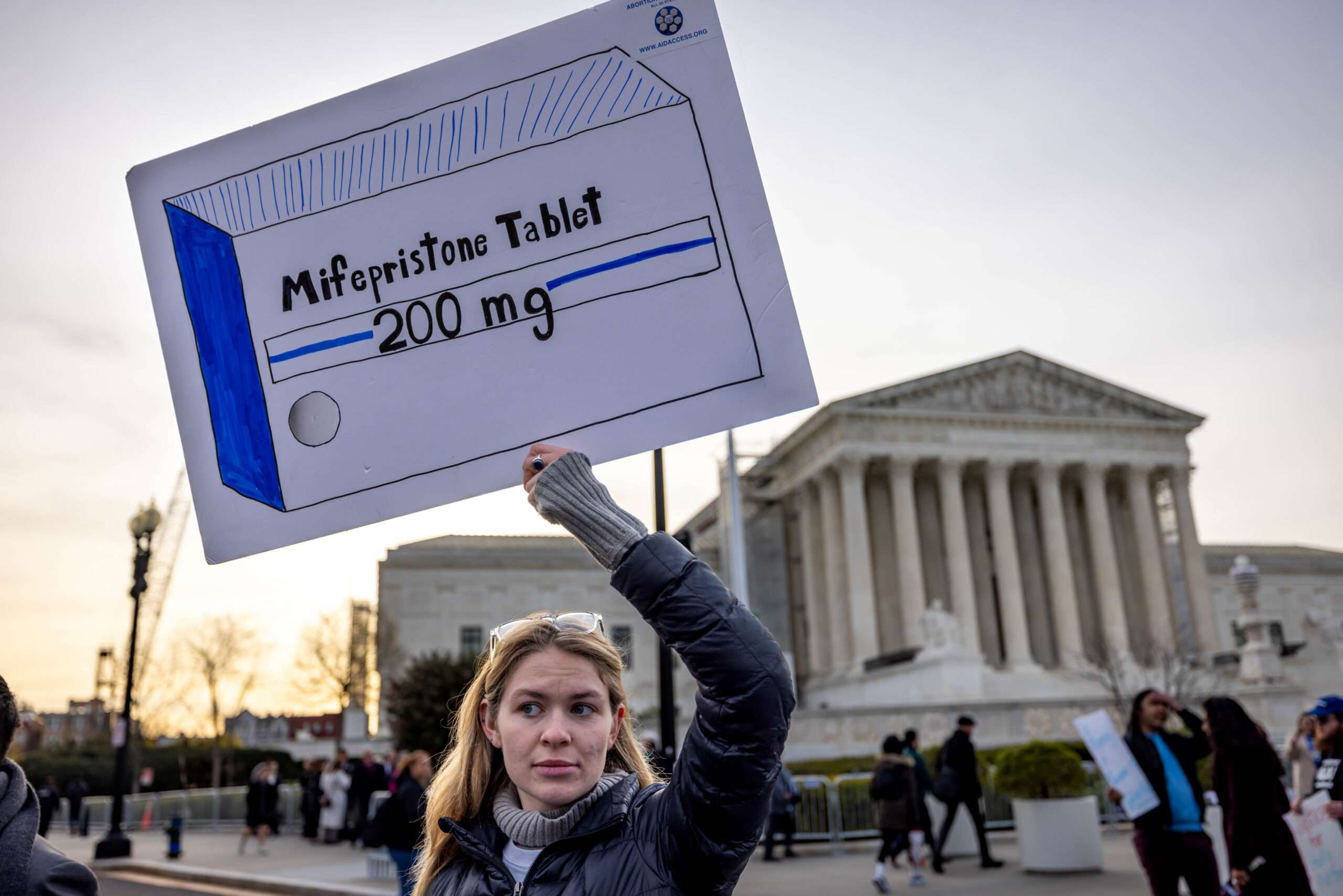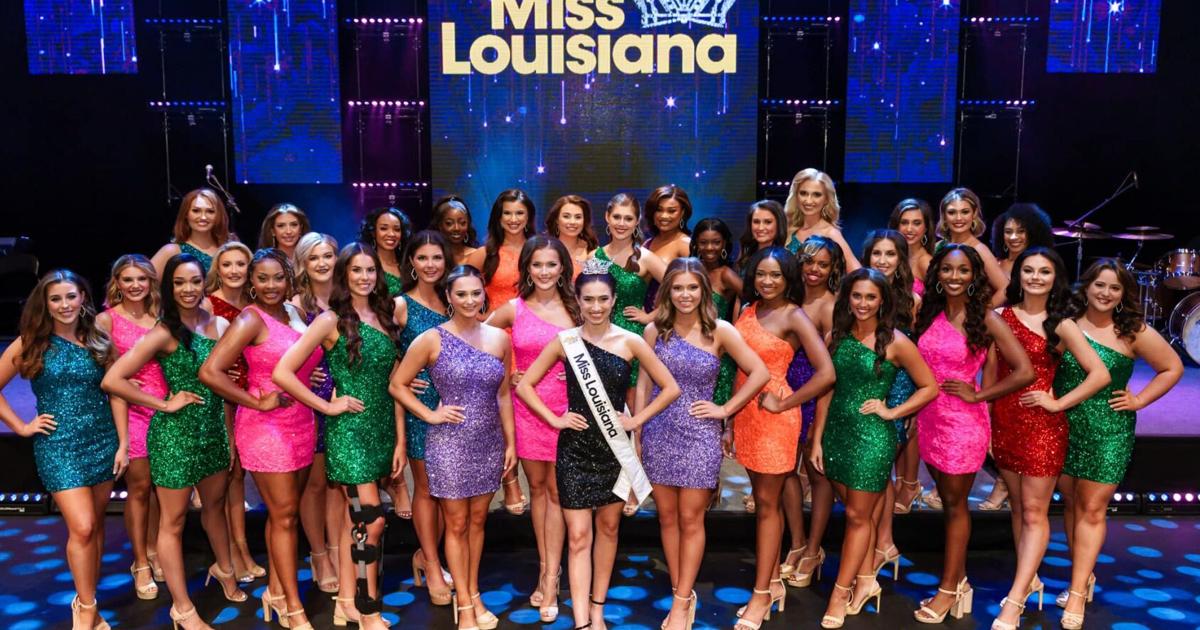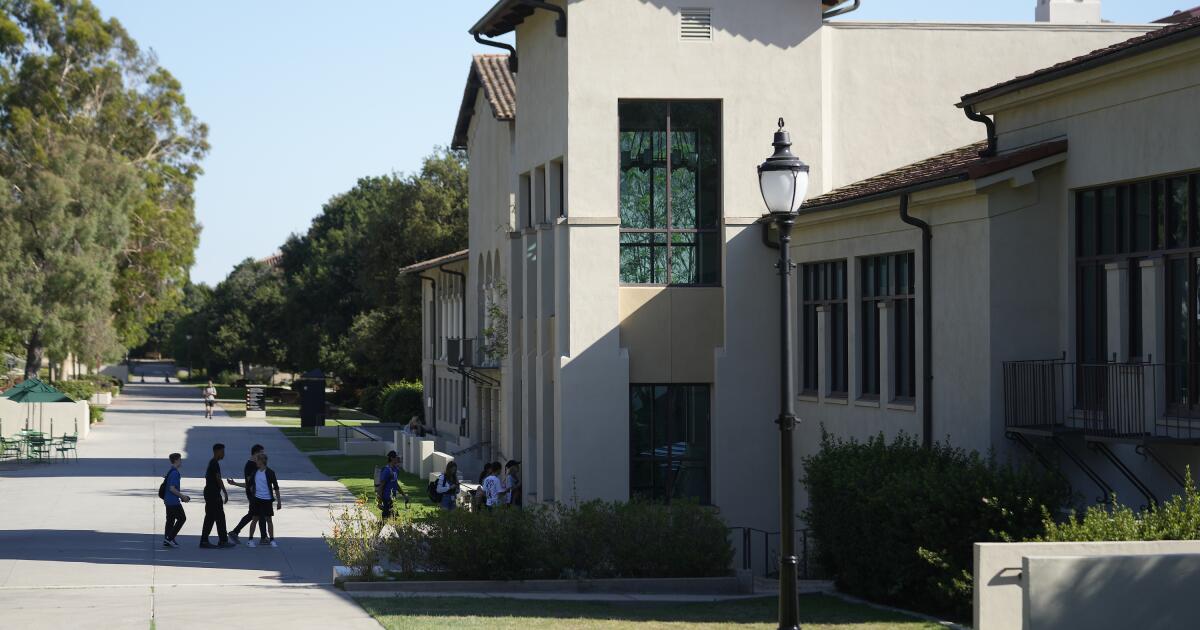Louisiana
Louisiana moves to make abortion pills a controlled substance

Outlawing abortion is only a first step for some conservative lawmakers, who keep dreaming up increasingly invasive schemes to ferret out and punish anyone trying to circumvent these bans. The latest example of this comes from Louisiana, where House lawmakers voted this week to make the abortion-inducing drugs mifepristone and misoprostol Schedule IV controlled substances.
That would make possession of these drugs a crime—punishable by a mandatory minimum prison sentence of one year and up to five years incarceration and a fine of $5,000—unless they were “obtained directly or pursuant to a valid prescription” for something other than abortion.
The alleged rationale for this bill is especially insane. State Sen. Thomas Pressly (R–Shreveport) brought in his sister, Catherine Pressly Herring, to testify about how her husband secretly slipped her abortion drugs when she was pregnant. “I share my story because no one should have abortion pills weaponized against them,” Herring said at an April hearing.
But administering abortion pills is already illegal in Louisiana, where abortion is banned with few exceptions. The state wouldn’t need a new law designating them a controlled substance in order to punish her husband’s alleged deception.
There are also ways authorities could write a law to more narrowly target such behavior—which is in fact what Sen. Pressley is trying to do with Senate Bill (SB) 276, the larger bill to which the controlled substance change is attached. SB 276 “creates the crime of coerced criminal abortion by means of fraud to prohibit a third-party from knowingly using an abortion-inducing drug to cause, or attempt to cause, an abortion on an unsuspecting pregnant mother without her knowledge or consent,” per the state legislature’s website.
The True Target: Doctors and Pharmacists?
With or without this new crime, there is no reason the state needs to make abortion pills a Schedule IV controlled substance in order to target someone who secretly slips them into his pregnant wife’s drink. But this is a common tactic used by lawmakers trying to grant the state new power: using an extreme and sympathetic example of wrongdoing to justify a wide-reaching change that will be used in matters way beyond that example.
In this case, the most likely target is doctors who prescribe mifepristone and misoprostol.
Both drugs have multiple uses beyond inducing abortions. In fact, misoprostol originally gained traction as an anti-ulcer drug. It also has a number of obstetric uses, including inducing labor and treatment after a miscarriage. And Mifepristone is prescribed to people with Cushing syndrome and uterine leiomyomas.
Prescribing mifepristone or misoprostol for non-abortion reasons is still legal in Louisiana and other states where abortion is banned. But abortion foes worry some medical professionals may use this to covertly prescribe it for abortions.
If these drugs are controlled substances, doctors will have to have a special Drug Enforcement Administration license to prescribe them and the state will be able to track when they’re prescribed, to whom, and at what pharmacy these prescriptions are filled.
Effect on Health Care
“Louisiana law typically categorizes medications, such as opioids, as Category IV drugs because they are addictive and thus have a high potential for abuse,” notes University of California, Davis School of Law professor Mary Ziegler at MSNBC:
To prescribe such drugs, physicians in the state need a special license, and the state tracks the patient, physician and pharmacy involved in each prescription. Therein lies one of the primary functions of the law: The state has had a hard time enforcing its abortion ban in part because it is hard to identify when and how pills change hands. At least when a prescription originates in state, this bill might give Louisiana prosecutors an extra edge in identifying people to prosecute.
The bill explicitly exempts pregnant women who have misoprostol or mifepristone for their own use from prosecution—another example of the weird paternalism involved in anti-abortion laws. I’m certainly glad most states don’t want to criminalize women for attempting or having abortions, but it’s also somewhat crazy to act like the woman here is not culpable for her actions but someone who helped her get abortion pills is.
While the law might not result in sending women to prison over abortion drugs, it could be bad for the health of women with miscarriages and other obstetric issues for which misoprostol and mifepristone are prescribed, as well as for people with ulcers and Cushing’s disease.
Doctors are likely to be leery of prescribing these medications for people who need them, much in the same way that crackdowns on pain pills and ADHD medications have harmed people who legitimately need these medicines for health conditions.
What’s Next
The bill seems likely to pass.
Louisiana’s Senate passed SB 276 without the controlled substances amendment by a unanimous vote back in April.
It defines the crime of coerced abortion by means of fraud as “a person knowingly and intentionally engages in the use or attempted use of an abortion-inducing drug on a pregnant woman, without her knowledge or consent, to cause an abortion,” and prescribed a punishment of five to 10 years in prison and a fine of up to $75,000 if the woman was less than three months pregnant and 10 to 20 years in prison and a fine of up to $100,000 if the pregnancy was further along than three months.
It also amends the state’s prohibition on “criminal abortion by means of abortion-inducing drugs” to include not just causing an abortion by “delivering, dispensing, distributing, or providing a pregnant woman with an abortion-inducing drug” but also with attempting to cause an abortion by these means.
SB 276 passed the House, with the amendment, on Tuesday, by a vote of 64-29. This version contains an amendment declaring “any material, compound, mixture, or preparation containing any detectable quantity of mifepristone or misoprostol” to be a Schedule IV controlled substance in Louisiana.
The measure now goes back to the Senate for another vote.
More Sex & Tech News
• Florida is micromanaging what massage therapists can wear in the name of “cracking down on human trafficking.” Under a new law signed by Gov. Ron DeSantis last week, their clothing must be “fully opaque and made of non-translucent material.” The law also stipulates that window coverings at massage businesses must allow in 35 percent of light. This is the kind of law that will do naught for “human trafficking” or labor exploitation, of course. But it does give authorities more pretense to investigate, sanction, and shut down massage businesses of the sort disfavored in many communities.
• The Woodhull Foundation and the Electronic Frontier Foundation are urging the U.S. Supreme Court to find Texas’ age-verification mandate (part of H.B. 1181) unconstitutional.
• California is the latest state to advance an age verification measure.
• Washington and Silicon Valley are gearing up for a war over AI.
Today’s Image


Louisiana
Miss Louisiana 2024 will be named from the 32 women across the state

Miss Louisiana will be named in a competition offering scholarships and in-kind prizes that concludes tonight.
After months of preparation, 32 women across Louisiana will compete in the final round at 8 p.m. at the Monroe Civic Center to see who will hold the coveted title over the next year.
The preliminary round of the competition resulted in over $10,000 in scholarships awarded and included competitions of health & fitness, evening wear, on-stage conversation and talent.
A spokesperson for the Miss Louisiana Organization said the women competing will be awarded nearly $1 million in scholarships and in-kind prizes for women who have achieved particular merit in their field by the end of the final round.
So far, the following women have received awards in the preliminary rounds:
- Miss University of Louisiana at Monroe, Gabrelle McLeod. McLeod was awarded a $250 newcomer health & fitness award and a $500 overall preliminary health & fitness award.
- Miss Ouachita Parish, Leah Thompson, received a $500 newcomer talent award.
- Miss Belle of the D’Arbonne, Anna Katherine Thompson, won an overall talent award with a scholarship of $1,000.
Multiple women have received a “Women-in” scholarship of $1,000 for their accomplishments in their fields:
- Miss Dixie Stockshow, Katherine McCullars
- Miss Louisiana Watermelon Festival, Olivia Grace George
- Miss New Orleans, Megan Magri
- Miss Belle of the D’Arbonne, Anna-Katherine Thompson
Four women in STEAM fields also received $500 scholarships for their contributions:
Louisiana
Louisiana Waffle House Customers to See Increase in Menu Prices

The next time you dine at your favorite Waffle House in Louisiana, it will cost you more to get those world-famous hashbrowns “scattered, smothered, and covered.”
Waffle House CEO Joe Rogers III recently said that the company is planning to raise menu prices soon.
Rogers told employees in a video message last month that plans are laid out to offset the cost of increased wages by raising menu prices at restaurants. He said the move was necessary to “pay for this journey.”
Of course, most would consider Waffle House a pretty inexpensive place to dine. (Last time I went there, it cost about $20 for me and my bride to eat.)
“Make no mistake, whatever that edge is that we currently have with menu pricing, that is going to shrink a little bit in a few years,” Rogers said. “But our bet is the prevailing talent and attitudes we have behind the counter will be our biggest competitive differentiator of the future.”
Waffle House will be strategic in its price increases. Rogers said that restaurants in major cities — like Dallas and Atlanta — will have more “room” to raise prices than restaurants in “suburban or rural” areas.
“Our menu prices in a rural town are relative to competitors’ menu prices in that rural town. So we may not have as much room to increase prices as we have in a large city.”
The bigger increases in larger cities are designed to offset the higher costs of living for employees working at those locations.
GioandJC via YouTube
Regarding the exact price increases, Waffle House representatives weren’t ready to disclose that or provide additional details.
With rising prices, customers will have rising expectations, Rogers said.
“This means that our levels of hospitality and service, the cleanliness of our units, and the preparation and portion size of our food, among other things, all need to elevate to a new level if we are going to be successful,” he said.
This latest news piggybacks somewhat off of Waffle House’s announcement in May that it plans to raise workers’ wages via a system designed to begin increasing base pay, provide tenure-based bonus pay, and offer “premiums” for certain shifts.
The first wage increases went into effect in June, according to Rogers’ video message.
Waffle House is based in Norcross, Georgia, and currently operates over 1,900 locations in 25 states, mostly in the South and Midwest.
Louisiana currently has 102 Waffle House restaurants, which is the fourth-most in the country behind Texas, Tennessee, and Alabama.
Most Expensive Home for Rent in Destin, Florida During Summer 2024
This amazing beachfront vacation home in Destin features 7 bedrooms, 7+ bathrooms, and about 10,000 square feet of living area. But, it’ll set you back about $35K for one week!
Gallery Credit: VRBO
Louisiana
Stark Warning: Dangerous Levels Of Toxic Gas Detected In Louisiana’s “Cancer Alley”

Toxic gas used in petrochemical manufacturing has been detected at levels a thousand times higher than what is considered safe in Louisiana.
The chemical in question is ethylene oxide, an extremely flammable and colorless gas with a slightly sweet smell. It has a variety of industrial uses, including the production of products like antifreeze, detergents, fibers, and bottles. It’s also used to sterilize medical and food production equipment.
Researchers at Johns Hopkins University recently tested levels of ethylene oxide in the air of southeastern Louisianna using two vans fitted with different but highly sensitive technologies to measure the gas in real-time.
This part of the state includes “Cancer Alley,” a stretch along the Mississippi River between New Orleans and Baton Rouge that has very high rates of cancer and other health issues among its residents. By coincidence, it also has a significant number of petrochemical plants that pump out all kinds of industrial chemicals, including ethylene oxide.
Long-term exposure to concentrations of ethylene oxide over 11 parts per trillion is considered problematic to human health due to its ability to directly damage DNA and increase the risk of cancer.
Shockingly, this study found levels as high as 40 parts per billion in areas close to industrial facilities. The concentrations were also found to be way higher than the estimates created by the Environmental Protection Agency.
A map of southeast Louisiana showing concentrations of ethylene oxide in the ambient air.
IMAGE CREDIT: KHAMAR HOPKINS/JOHNS HOPKINS UNIVERSITY
“We expected to see ethylene oxide in this area. But we didn’t expect the levels that we saw, and they certainly were much, much higher than EPA’s estimated levels,” Peter DeCarlo, senior author and an associate professor of Environmental Health and Engineering at Johns Hopkins University, said in a statement.
“We’d drive through the industrial areas and saw concentrations hitting 40 parts per billion, which is more a thousand times higher than the accepted risk for lifetime exposure,” DeCarlo said.
The researchers warned that people living near facilities that manufacture and use ethylene oxide could be at a higher risk of cancer.
“Our findings have really important implications for community residents, especially infants and children. Ethylene oxide has been shown to directly damage DNA, meaning that exposures that occur in early life are more dangerous,” said Keeve Nachman, associate professor of Environmental Health and Engineering and the co-director of the Risk Sciences and Public Policy Institute.
The new study was published in the journal Environmental Science & Technology.
-

 News1 week ago
News1 week agoIsrael used a U.S.-made bomb in a deadly U.N. school strike in Gaza
-

 Movie Reviews1 week ago
Movie Reviews1 week agoShort Film Review: Blue and White (2022) by Hiroyuki Nishiyama
-

 World1 week ago
World1 week agoFrance to provide Ukraine with its Mirage combat aircraft
-

 World1 week ago
World1 week agoWorld leaders, veterans mark D-Day’s 80th anniversary in France
-

 World1 week ago
World1 week agoRussia-Ukraine war: List of key events, day 833
-

 News1 week ago
News1 week agoNonprofit CFO Accused of 'Simply Astonishing' Fraud
-

 Movie Reviews1 week ago
Movie Reviews1 week agoInsane Like Me? – Review | Vampire Horror Movie | Heaven of Horror
-

 Politics1 week ago
Politics1 week agoGeorge Clooney called White House to complain about Biden’s criticism of ICC and defend wife’s work: report



















